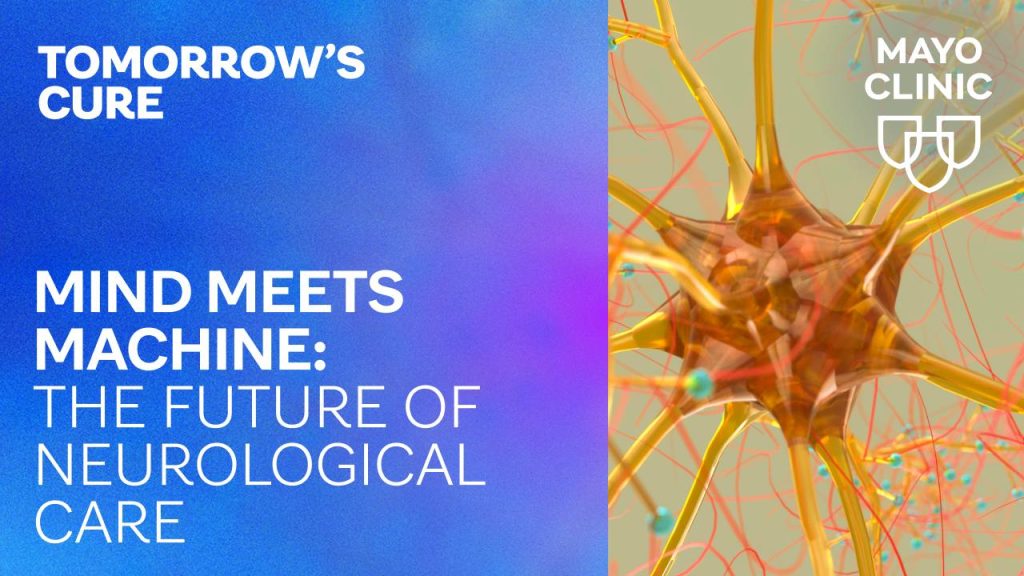-
Neurosciences
Tomorrow’s Cure: Mind meets machine — the future of neurological care

On this week's episode of Tomorrow's Cure, we explore brain-computer interfaces (BCIs), cutting-edge technologies that create direct communication pathways between the human brain and external devices. Once considered science fiction, BCIs are now transforming lives.
The podcast episode features Dr. Jonathon Parker, epilepsy and functional neurosurgeon, assistant professor of neurosurgery and neuroscience, and director of the Neuroelectronics Research Lab at Mayo Clinic; and Dr. Allen Waziri, neuroscientist and neurosurgeon, and CEO and co-founder of iCE Neurosystems. Together, they discuss the science behind BCIs, current medical applications and the transformative possibilities they hold for the future.
BCIs offer groundbreaking possibilities in the treatment of neurological disorders, with the potential to restore mobility, communication and independence to people affected by severe neurologic injuries or conditions. Already, this technology is enabling users to control prosthetic limbs and digital interfaces through brain activity.
"The brain is a piece of hardware; the brain-computer interface is another piece of hardware we are connecting to the brain," says Dr. Parker. "We are used to communicating through speech, movement, understanding other sensory inputs, right? So this is digitizing those inputs to solve a problem."
"BCIs, for several decades, is the translation of those electrical potentials that are coming off of the brain into something that we can understand on a computer side that will then functionalize whatever device — a robotic arm, a cursor on a screen, drive a wheelchair, so on and so forth," says Dr. Waziri.
BCIs are being used to assist people with neurological injuries that impair speech or movement. However, experts believe this technology has far greater potential. Beyond restoring motor function, BCIs could pave the way for continuous neurological monitoring and new forms of intervention, opening doors to transformative applications in brain health.
Dr. Parker emphasizes the broader clinical implications of the technology. "When delivered to clinicians so they can just monitor the brain signals overtime, (it) could have tremendous impact for epilepsy, depression, Alzheimer's — these conditions which are affecting huge swaths of our population. That's the future of this technology," he says.
Don't miss this thought-provoking conversation on the evolving science of BCIs and the remarkable innovations that could redefine human-machine interaction. Listen to the latest episode of Tomorrow's Cure, and explore the full library of episodes and guests at tomorrowscure.com.







